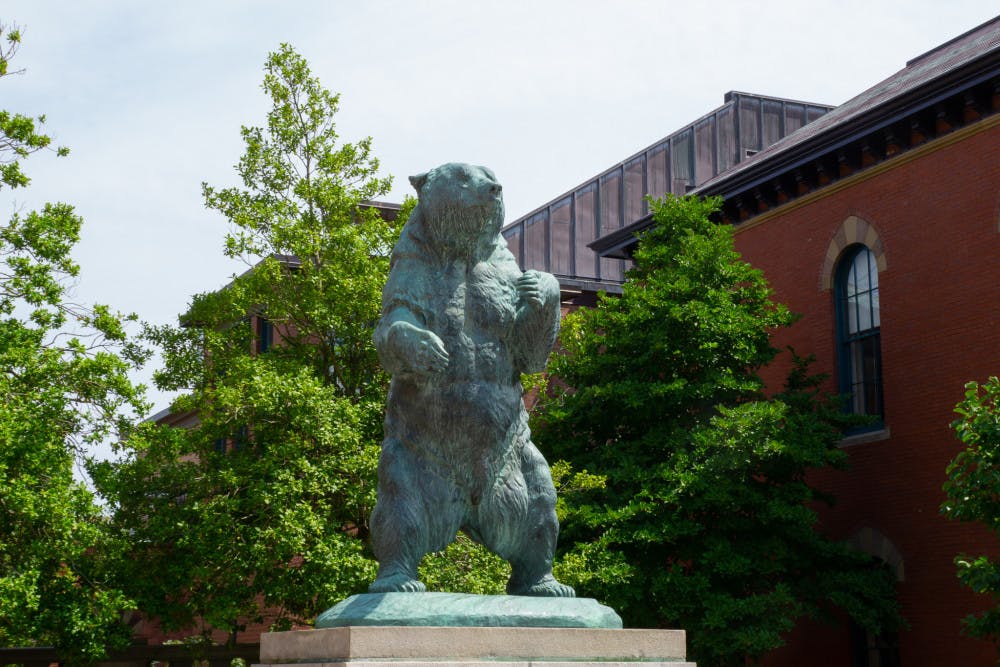Updated 3:10 p.m., May 27, 2021.
The University announced “significant changes” to its COVID-19 guidelines that will “enable increased campus activities” in light of improving public health conditions both on campus and across the state, according to a community-wide email Thursday from Executive Vice President for Planning and Policy Russell Carey '91 MA'06.
The University has reduced routine COVID-19 testing requirements for students and faculty members living on campus or in the Providence area to once weekly effective June 1, and eliminated the outdoor mask-wearing requirement for fully vaccinated individuals.
The new changes also lift restrictions on University-sponsored domestic travel, as well as the “essential travel only” mandate.
Communal spaces such as residence hall kitchens, study spaces and lounges will reopen for student use in June. Classroom distancing and indoor mask-wearing protocols will remain in effect until further notice. The Department of Facilities Management will resume multiple occupancy in several sites designated for single use earlier in the pandemic, including elevators and multi-use bathrooms.
Students may also visit residence halls other than their own, regardless of on-campus or off-campus status.
Other indoor spaces, including reduced-density labs, will continue to operate with additional restrictions until “we are confident the employee and student vaccination rates are at 90 percent or above,” Carey wrote.
“How much and how fast we are able to continue to loosen the restrictions implemented in response to the pandemic and resume full operations depends entirely on our community getting vaccinated and documenting their vaccination in the coming weeks,” Carey wrote, “so please do so immediately.”
Almost a third of total students — 31.1 percent — and 44.7 percent of employees had documented their COVID-19 vaccinations with the University as of May 21, The Herald previously reported. Of the students currently on campus, 44.6 percent had uploaded their vaccine cards and 47.1 percent of on-campus employees had recorded theirs.
According to Carey, the University is considering expanding on-campus operations further, depending on the campus vaccination rate and public health conditions. Potential changes include increased flexibility for University-hosted events, expanded use of recreational facilities and in-person dining services.
“If public health conditions continue to allow and Brown achieves near-universal vaccination rates among employees and students,” Carey wrote, “we will be able to build upon the changes being announced today, further loosen restrictions and allow even greater levels of activity on campus over the course of the summer. Our goal is to be at or close to fully normal (pre-pandemic) operations by the beginning of the fall semester.”
The University plans to update the community about vaccination rates on Fridays through Today@Brown, University Spokesperson Brian Clark wrote in an email to The Herald.
Carey added that community members should view the summer as a “transition period for the campus” and should “exercise caution and continue best public health practices to prevent the transmission and spread of COVID-19.”
“All members of the community should become familiar with the restrictions and policies in place, respect and follow direction from University staff responsible for enforcing those policies and generally exercise patience and understanding as we manage through this transition period together,” he wrote.

Jack Walker served as senior editor of multimedia, social media and post- magazine for The Herald’s 132nd Editorial Board. Jack is an archaeology and literary arts concentrator from Thurmont, Maryland who previously covered the Grad School and staff and student labor beats.





